Kristin Eriko Posner, founder of Nourish, which helps people remember their rituals, connect to their heritage, and build community, is proud of her Japanese heritage and her Jewish life, knows what it’s like to not belong, says no to multitasking, and reads cookbooks cover to cover.
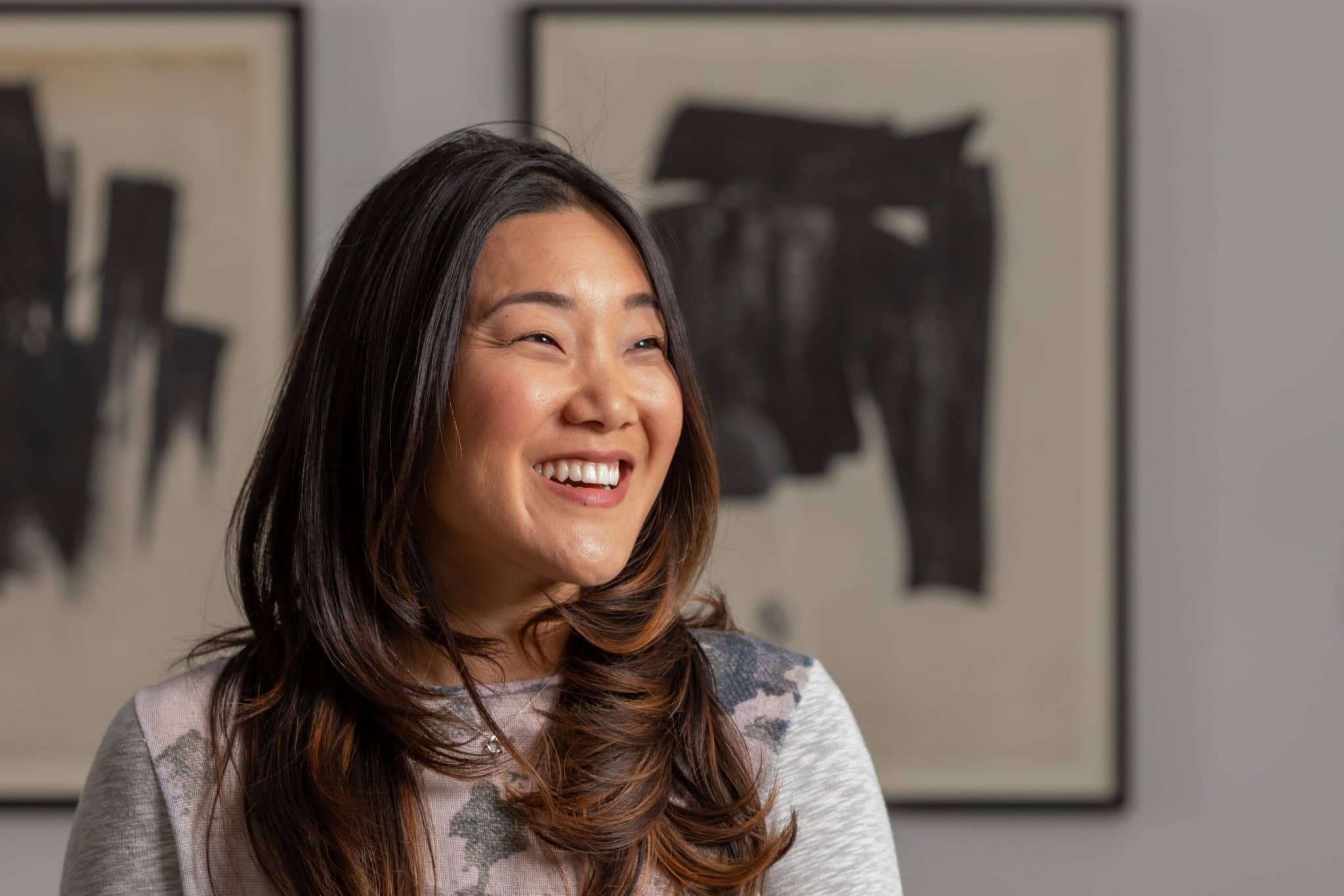
What’s the story behind your name?
My full name is Kristin Eriko Posner.
I recently changed my last name to Posner. It was Namimoto before, which is my Japanese-American family’s last name.
When my parents were deciding on my first name, they got into this huge debate, because my mom, who had immigrated from Japan, really wanted me to have a Japanese first name, but my dad, a third generation Japanese-American, insisted that if I was going to grow up here in the U.S., I should have an English first name. They decided on an English first name and a Japanese middle name.
When I got married a year and a half ago, I knew that I wanted to take Bryan’s last name. I was Kristin Posner for a little while. There was an element of surprise when people met me, like, “Oh, you’re not who I expected you to be.” I wanted people to know that I was Japanese, so I decided to start using my full name, Kristin Eriko Posner.
What was your kid personality?
I am the eldest of three kids, so I’ve always had an older sister personality.
To this day, my siblings joke that I’m their second mom.
I have always loved taking care of people and nourishing people, making sure that they’re okay.
What advice would you give to your teenage self?
I worried so much when I was a teenager. I worried about how life would turn out, how my parents would be taken care of, how my siblings would be. Everyone turned out just fine, so I would tell myself that everything’s going to be okay.
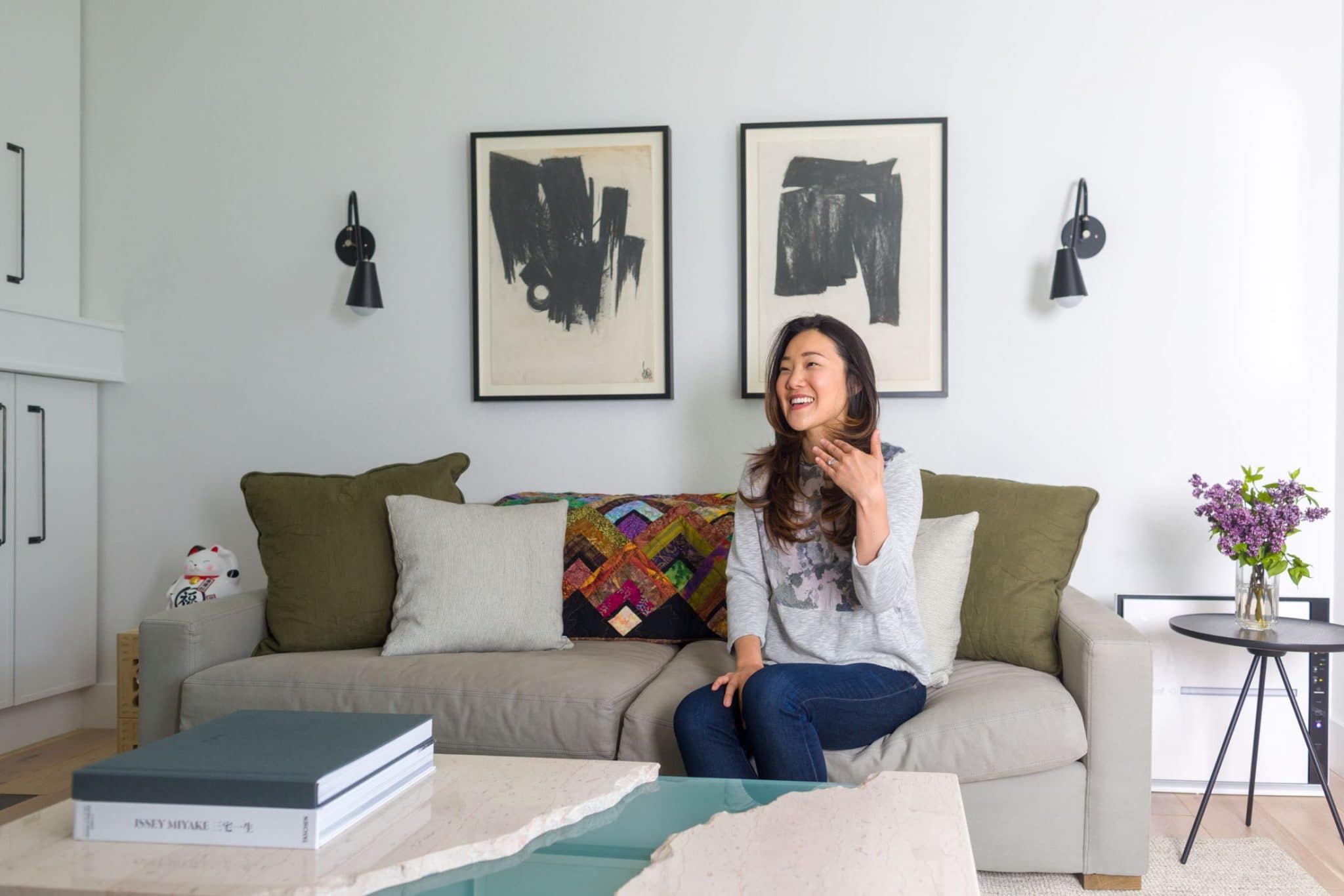
What was the religious or spiritual background of your upbringing?
I had one grandmother who moved from Hawaii to LA and another grandmother in Japan. Whenever we visited them, the first thing we would do is go straight to the family shrine. We’d make a little offering, burn some incense, ring a bell, clap our hands, and bow. I still don’t know a lot about those rituals, but I picked up on the idea of honoring your ancestors, which is really important to me. The candle on my own altar is a prototype of one of the ritual objects I’m working on with my friend Melissa from Forde on Fire.
Before having a meal, we would always say “Itadakimasu,” which is like a short blessing. You’re thanking the farmer who picked the lettuce for your salad, and the soil that the lettuce grew in, and the sunshine that helped it grow, and the rain, and the cook who made it. You’re thanking the whole cycle of this dish’s life.
I didn’t have any sort of religious foundation.
My parents gave me the gift of choice, which I’m grateful for, but when I was a little kid all the way through college, I was searching for some sort of spirituality. I tried out a couple of things, and I never really found something that felt right until I found Judaism.
How did Judaism become a part of your life and identity?
I think the first time I experienced Judaism was through my neighbors in elementary school. We went to their house for Hanukkah. There were latkes and we lit candles. It was exciting, because it was totally new to me. I remember learning about how we get one gift on Christmas, but they get eight. As a little kid, you think that’s the most amazing thing ever.
I had really close girlfriends in college who were Jewish, so I would go home with them to celebrate Passover. That was cool to be part of, but I didn’t feel a connection quite yet. Then, when I was in entertainment PR in LA, there was a large Jewish community.
I remember hearing about Rosh Hashanah, and I was really interested in it.
I wanted to hear more about all of the different rituals and foods. I was just getting into cooking. It sounded so beautiful. I remember thinking, “I wish I could be part of that.”
When Bryan and I got serious, I knew that I would want to convert. I’m someone who likes to dive into things, so I knew that converting would teach me a lot about his heritage and his traditions, then I would be able to impart that on future generations of our family.
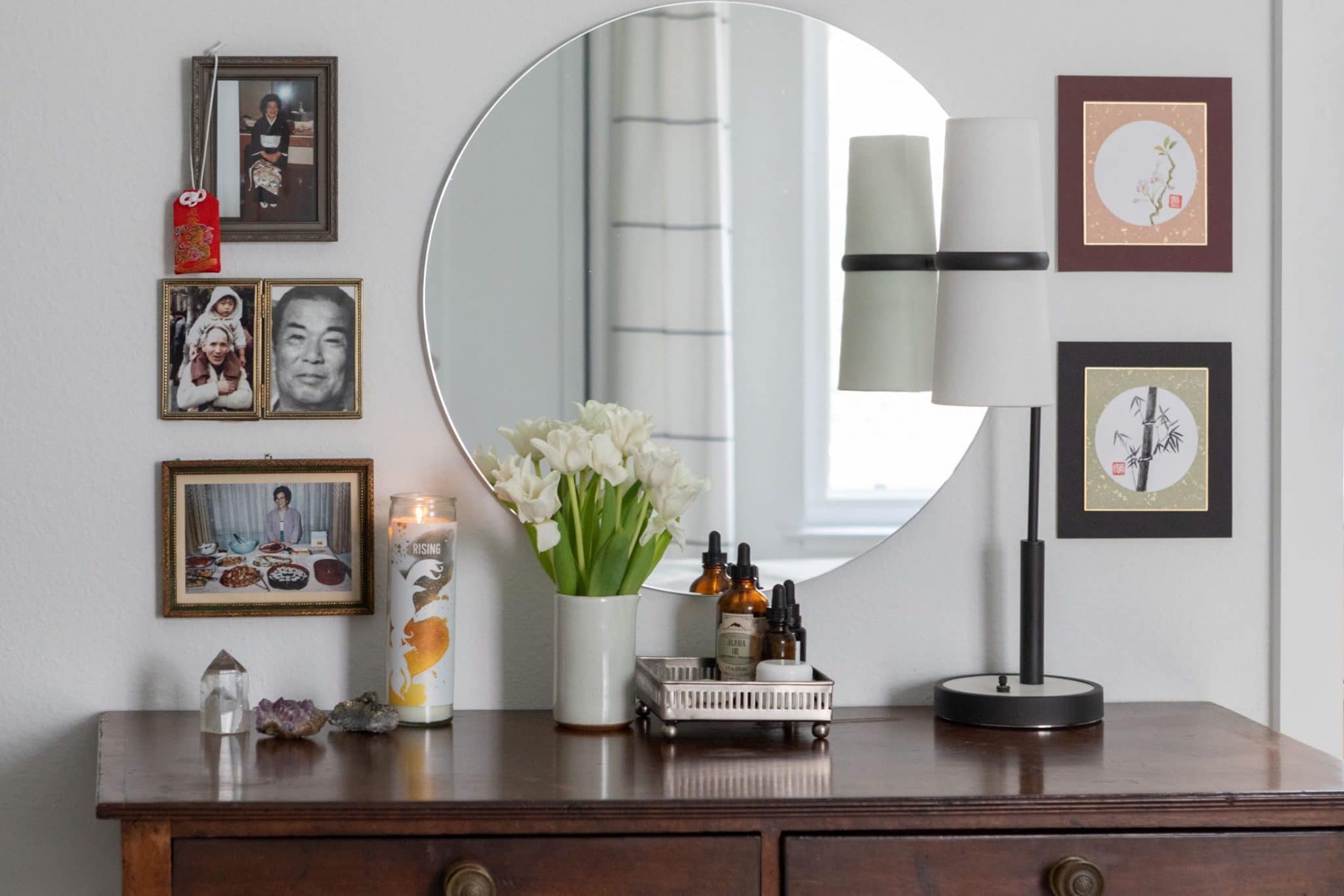
How does Judaism fit into your life now?
We’re Reform Jewish. Having the freedom to update and reinvent our rituals so that we can still connect to them is really important and part of the ideal Jewish experience to me.
Bryan and I are part of an amazing synagogue, Congregation Emanu-El, here in San Francisco, but I think that’s becoming trickier for people. I’ve had people ask me, “How do I be Jewish without going to synagogue?” There are lots of ways to do that, but being part of synagogue gives you the benefit of community. That’s really the core, to me, of what Judaism has given me: community that’s there for you and holds you during times that are fun and celebratory, but also during hard times when you can’t do that for yourself or for your family.
I wear a Star of David necklace that was a gift from Bryan for my bat mitzvah.
I don’t look like a lot of Jews here in the U.S., but I’m also so proud to be Jewish.
It’s similar to my name. I want people to know that I’m Jewish, so I wear this necklace.
One of the things I love so much about Judaism and the role that it plays in my life is that it’s thousands of years old, and there are all of these systems in place that are there to support you, whether you’re about to eat a meal or you’ve lost someone close to you. My life feels so full of all of these different Jewish tools that I can use and update however I would like. Having that Jewish foundation makes me feel ready to take on anything.
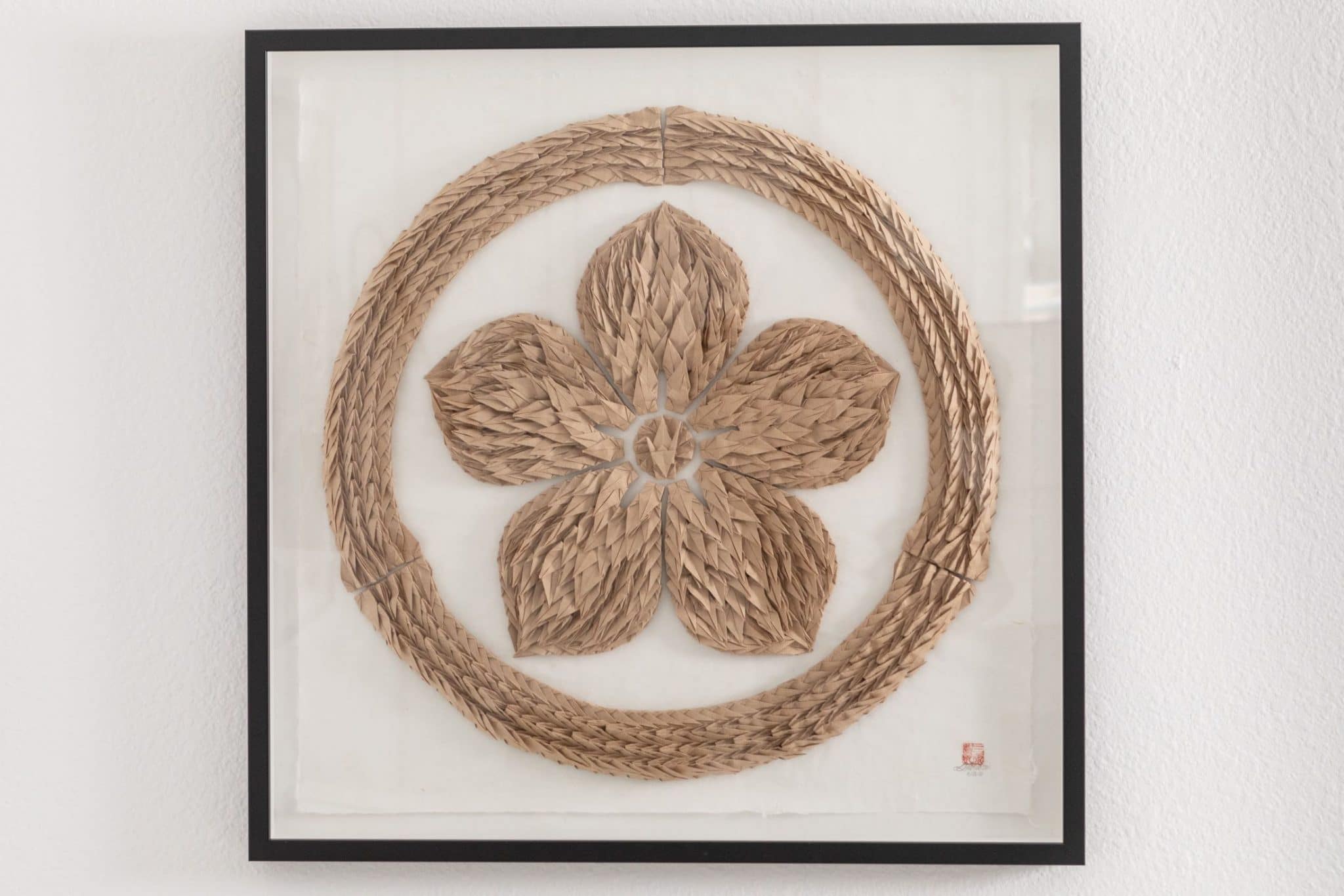
What are you working on these days?
I have a company called Nourish.
I’ve had so many careers. I used to be in entertainment PR, then I did food and wine PR. I also taught English in Japan, and I most recently did residential interior design. Nourish is a combination of all of those things.
I was planning my wedding and realized that there aren’t a lot of resources out there for those of us who are interfaith or multiracial, which is what I call us because we’re not technically interfaith. I wanted to have a place where I could show people what I was doing to mix our traditions and heritages.
I write guides for lifecycle events and holidays. I host events. I also write for InterfaithFamily on relationships and recipes. My next project is a shop that sells beautiful handmade ritual objects made by artisans here in the U.S. and Israel and Japan.
I also created an online tour of Japantown. Japantown is an amazing, fun place to check out. Great food, great shopping.
There’s this history that a lot of people don’t know about Japantowns in the U.S.
There used to be 40; Japantown in San Francisco is one of only three remaining. During World War II, 120,000 Japanese-Americans in those Japantowns and across the U.S. were forcibly incarcerated, and, after that, not even half of the people came back.
I started doing this tour after the election, because I saw a similar thing was happening in our government, but to a different people. I grew up with a lot of people who lived in the internment camps during World War II, and when I was little, they would say, “You have to remember that this happened, and don’t let this happen to anyone ever again.” This is my way of honoring them.
I hosted a racial justice Passover Seder, and that’s becoming a really important cause to me, because it’s in my blood to know what it’s like to not belong here, and I want to help other people.
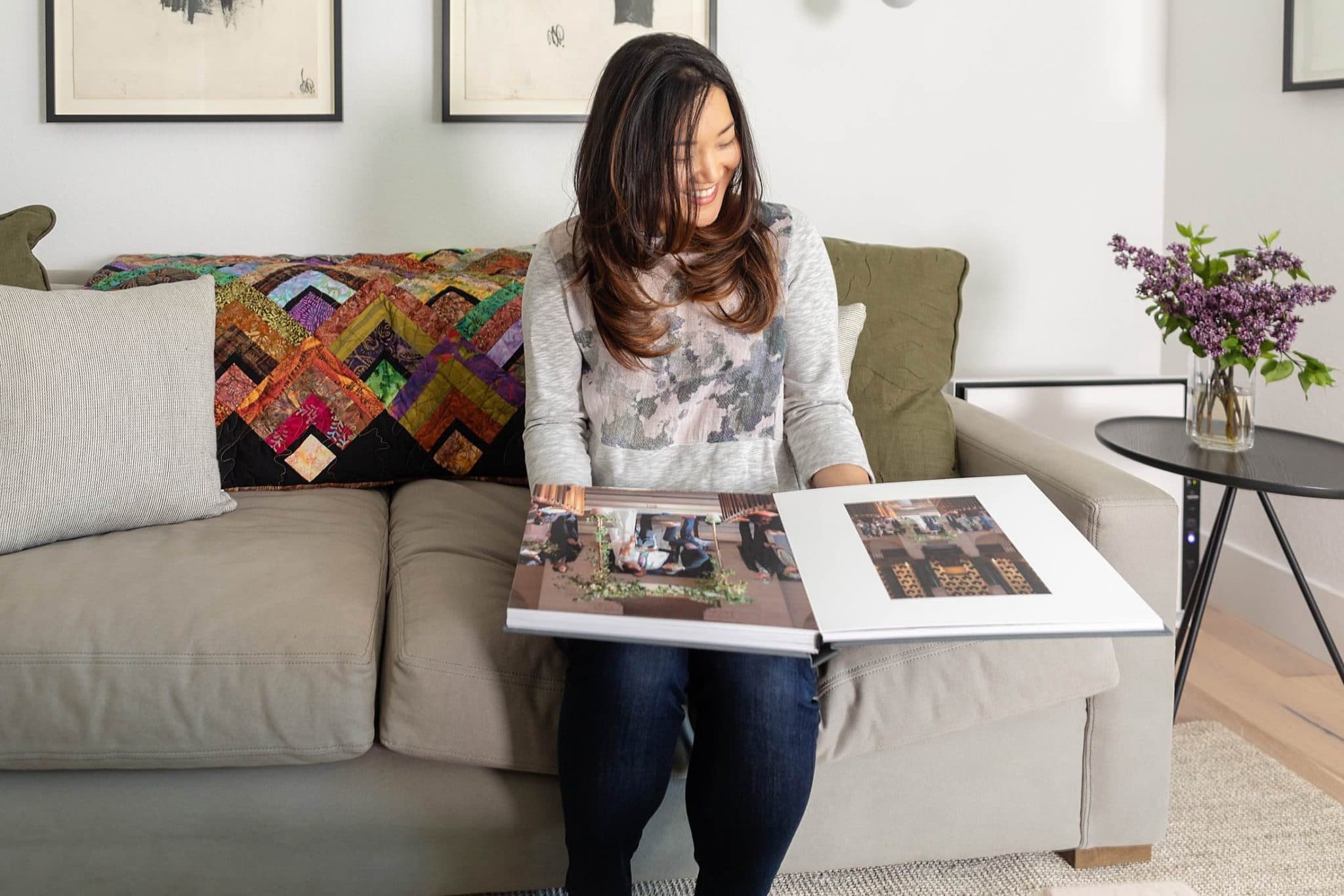
What is something that you have not figured out yet?
I have not figured out a morning routine like everyone says you should have. Every day is different.
What is something that you are certain of?
I feel really, really lucky that I’ve been able to figure out what my purpose on this earth is for now, which is to provide a space for healing for the next generation of Japanese and Jewish people. Although, it feels like what I’m doing with Nourish goes beyond both cultures.
What do you admire in others?
Kindness and being able to empathize with people.
I can’t watch dramas. I can only watches comedies. I can’t watch anything that’s too upsetting, because I am affected by it. Because empathy and kindness are of such importance to me, I really value those qualities in other people.
What do you consider the most overrated virtue?
Our culture celebrates people who are multitaskers and who say yes to everything. I think a lot of us are figuring out now that it’s not exactly the healthiest way to be.
I might take longer to do something or have to say no to more things, but it makes me better at what I do and a better wife and daughter. Being able to make space for things and not always be crazy, crazy busy all the time, which I’m still learning, because it’s so ingrained that it’s hard.
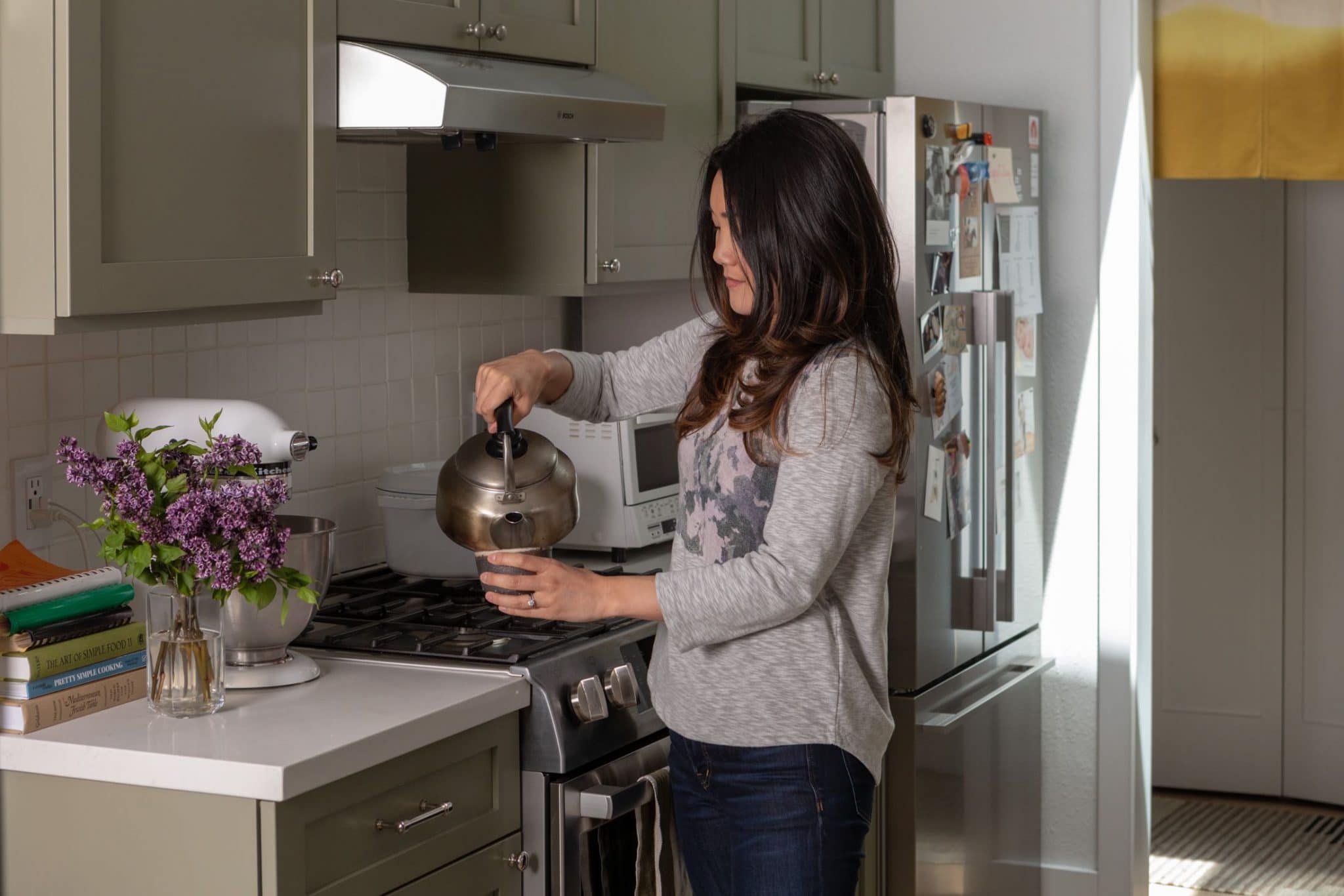
What content have you been enjoying recently?
I love Elizabeth Gilbert, I love Brené Brown.
Have you heard of Jenna Kutcher? She’s a wedding photographer in Wisconsin. She talks and writes about building a business and everything that she shares has been really helpful to me. I love How I Built This. It makes me all excited about building a business.
There is a book called JewAsian that I really loved. I have a pretty ridiculous collection of Vogue magazines.
I have a massive cookbook shelf and I read them cover to cover. I really love Jewish Cooking in America by Joan Nathan. I think that was the first Jewish book I ever read. The New York Times Jewish Cookbook, and I just got this book called the The Molly Goldberg Jewish Cookbook. It’s pretty hilarious. It was published in 1955. I flip through it every year.
What’s your favorite place on earth?
My home. Bryan and I have created a sanctuary out of our house, and it’s where I work. I’m here literally every day, and I love being here so much. I’ve got a quote somewhere that says home is where your exhale feels the best.
In terms of travel, Tokyo never gets old. We went on our honeymoon to Lisbon, and I’m obsessed.
What is your favorite Jewish holiday?
For a long time, I was really self-conscious about being that overly zealous new convert stereotype.
I’ve gotten over it. I was shy about saying, “I love this and this and that about Judaism.” I love all Jewish holidays. I think the holidays I love most are probably Passover and maybe a little weirdly Yom Kippur.
They’re the two holidays when you really take a break from the world. For Passover, I love all of the beautiful rituals where you have to use each of your senses. I think that is really powerful, and remembering what it was like to be an oppressed people. Both of them feel like a reset for the rest of the year.
Favorite Jewish food? Least favorite Jewish food?
I don’t have a least favorite Jewish food, because I really believe that, with some good ingredients and creativity, you can make an awesome recipe. I just did a post for Interfaith Family on Japanese kamaboko, which is Japanese fish cakes in the style of gefilte fish.
I know a lot of people don’t like gefilte fish, but I think you can make anything delicious.
Favorite Jewish food? The most comforting is matzo ball soup. I love all of Jewish cuisine. I want to learn more about all of the different Jewish cuisines around the world, not just Ashkenazi.
Is there anything else that you want to share?
Learning about Judaism made me really curious about my Japanese heritage.
I just started a Japanese tea ceremony class, which has been a great way for me to learn language, customs, tradition, history, and even design. I’m learning a lot about wabi-sabi. My mom was telling me recently that in tea ceremonies you treat people as if it’s the last time you’ll ever meet them. I think that’s really beautiful.
Photos by Larry Rosa
Thank you for visiting Arq!
Arq is no longer publishing new content. We hope you'll enjoy our archived posts.